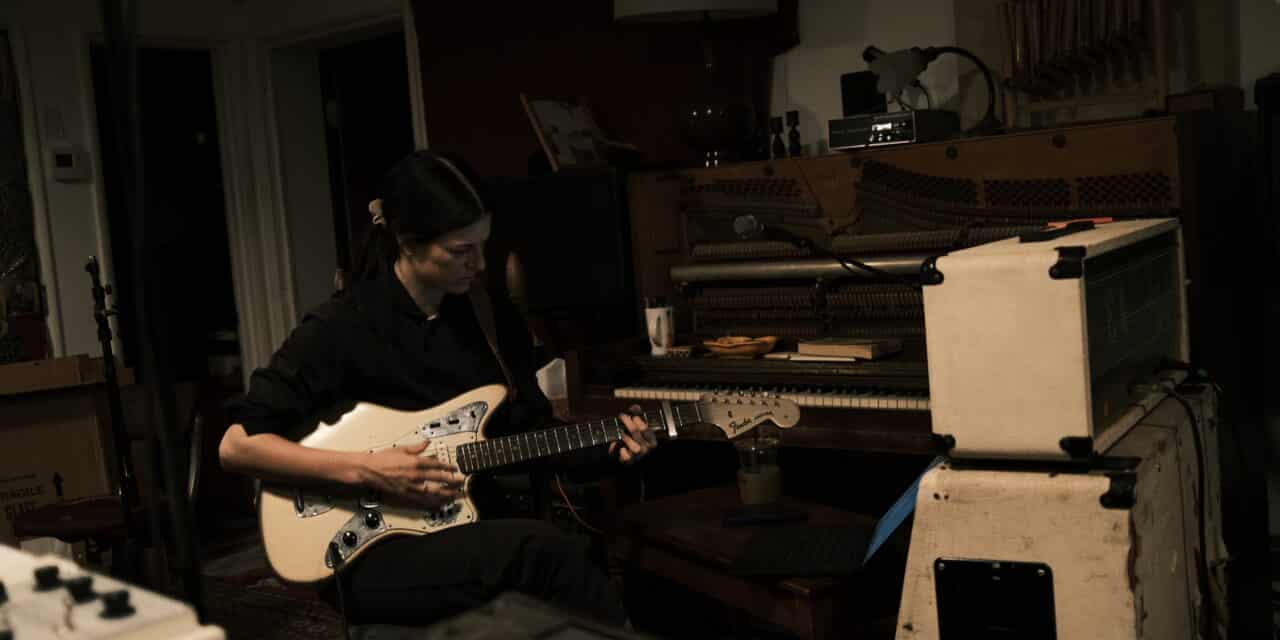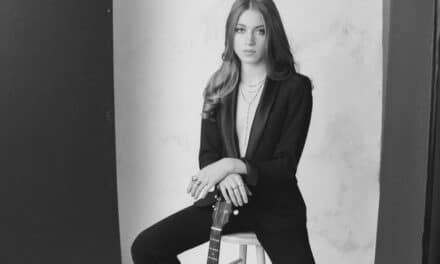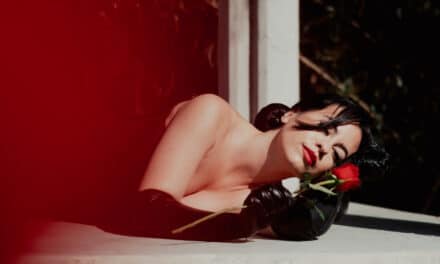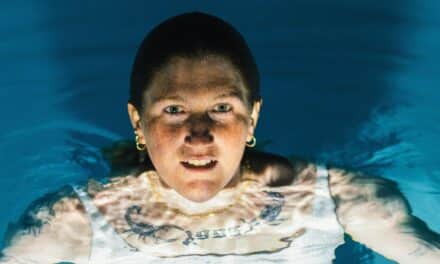Photo Credit Adam Lee
Years ago, in the pseudo-apocalyptic bleedout of a terrible heartbreak, there were a few key pieces of media that I clung to with a level of obsessive reverence held only by the recently shattered. Synth-pop records were played loudly enough to liquify untrustworthy mental neurons, wordy email chains were dissected and printed out alongside excerpts of Clint Eastwood movie scripts and pages upon pages from Chelsea Hodson’s 2018 book of essays titled Tonight I’m Someone Else.
My magpie collection of words lived pinned above my bed, where I could turn them over and over again in my mind and poke at the wound freely, very into sitting with my grief until the sadness felt just as valuable as the event that had caused it. The feeling is memorable, and even in conversation with Chelsea now, when I point out that the experience of reading her work is not dissimilar to having a gun pulled on you, she doesn’t disagree.
It is funny, though, how these things pass through you. When I moved, the shrine came down from the wall; there was no final revelation to justify the months spent in the echo chamber, but more of a slow trickle of changed context, tension and release. It is the same sense of evolved perspective heard in Chelsea’s musical debut, Belong to Nobody, a delicate, wrought single that echoes the smoky vocals of early Cat Power with glacial, dramatic production reminiscent of Ethel Cain’s 2025 album Perverts.
Recorded with Chelsea’s childhood friend and Jackpot! Studios engineer Adam Lee, along with percussion by ex-Sleater Kinney and Portugal. The Man drummer Vincent LiRocch. The single reflects the Pacific Northwest landscape it was born from, hazy and mysterious, with crystalline piano ebbing and flowing against Lee’s seamy synth. The song is wintery, confident, and downright sexy. Chelsea’s songwriting, though more minimalistic than those familiar with her essay work will be accustomed to, is as precise and blistering as ever.
Below, Chelsea discusses how her transition to songwriting came to be, her current perspective on love, and the process of collaborating during her recording. Belong to Nobody is streaming now on all platforms.
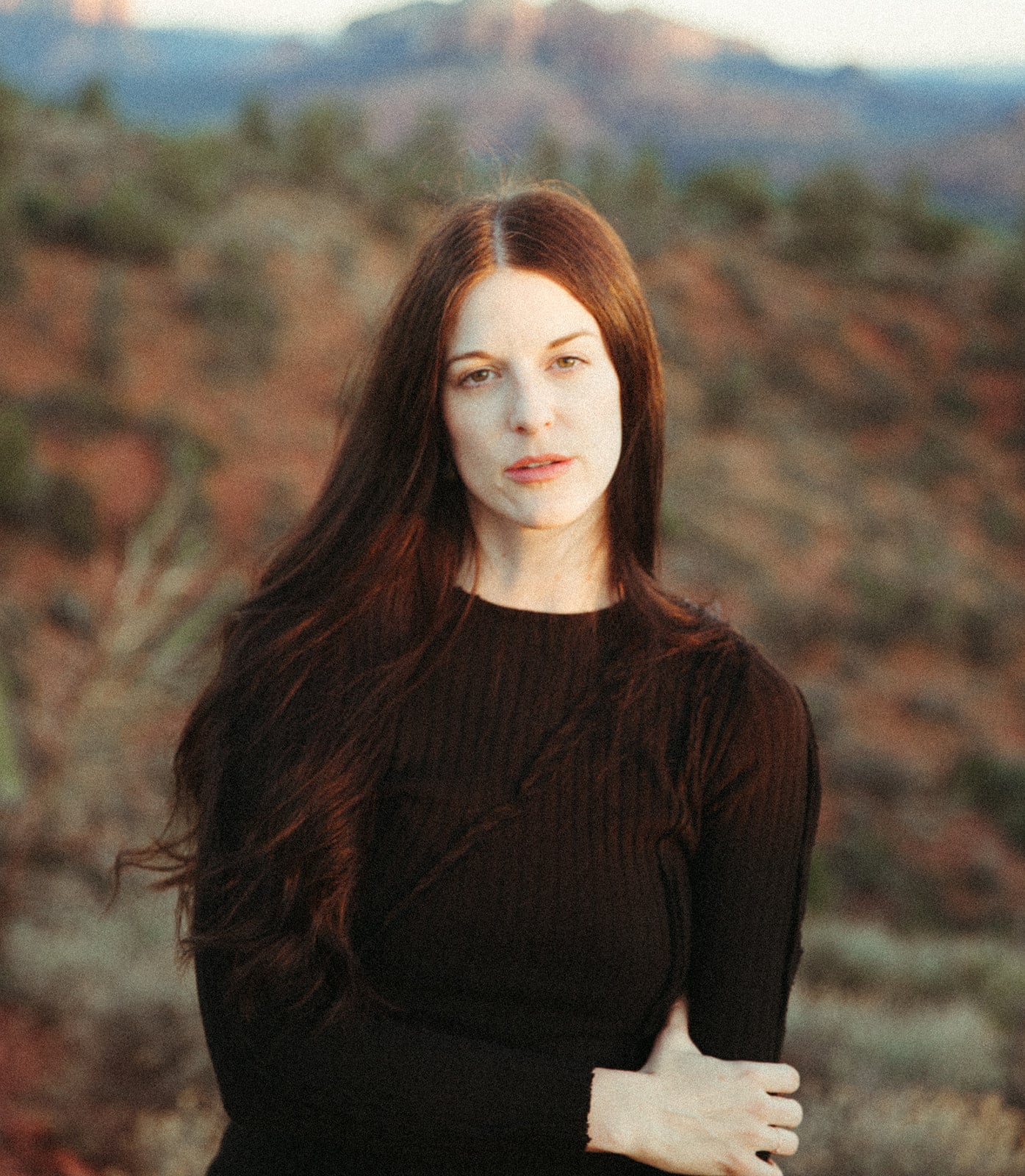
Photo Credit AmeliaGray
Mundane: I was thinking about the lyric “Love has one philosophy/It belongs to nobody.” It felt like such a strong assertion after recently re-reading your book, Tonight I’m Someone Else, which grapples so heavily with the idea of ownership and both wanting to possess and be possessed by someone. I’m wondering about how your perspective on the idea of love has changed from writing your book to writing this song.
Chelsea: The way that I wrote my lyrics is so different from how I wrote my essays, but ultimately, I think they’re coming from the same subconscious place of trying to understand my world and how I think about love and desire. The idea of loss really permeates through all of the songs, as well as the idea that perhaps love isn’t something that we can truly possess.
So I liked using “Belong to Nobody” as a way to imagine different, more ethereal forms of love moving and existing in ways that I hadn’t thought about before. In songwriting, I feel free to let the notes inform where my subconscious goes, so those lyrics weren’t something that I would have expected to write consciously. I like the idea of love as something we can never understand, something that is always mysterious and beyond certainty.
Mundane: That’s interesting, because as a writer, you almost feel a responsibility to contextualize and constantly explain yourself. So it’s interesting to release that sense of control.
Chelsea: Yeah, I can try to explain my lyrics, but something about them is almost inexplicable to me. In a song, I feel more comfortable just letting certain lines exist on their own without explanation, whereas in an essay, I might feel like I have to explain myself or provide certain answers. In a song, I try to just let one line inform the next. Especially since I’m so new to songwriting, I tried to just let myself explore in new ways.
Mundane: Writing is a very solitary process, and there are moments of clarity that you can keep to yourself. But when you’re working with a band, you’re inviting other people into that space and having to be very directly vulnerable in a sense. Does that sense of collaboration make things easier or more difficult?
Chelsea: I was really surprised by how much I liked the collaborative element of songwriting. I always really liked writing essays because I felt that the process didn’t rely on anyone else—my writing could just be me and a notebook, or me and a computer, and it didn’t rely on anyone else until the next phase. I kind of romanticized that sense of isolation, but even in writing, there’s an editor and a publisher and an agent—there are all these people that you collaborate with later. So even my ideal of being this isolated writer wasn’t exactly factual.
With music, I really had to confront my fear of not being perfect. Going into a studio and having someone there hearing me record in real-time was something I hadn’t experienced before. In other kinds of writing, I can keep the work to myself until I feel like it’s “perfect,” except it’s never perfect; I’m just trying to control it. So in music, I really had to let go of that desire for control and let myself discover a new creative language, so to say. That was the greatest difficulty and also one of the greatest joys.
Mundane: I’m interested in artists who change mediums for different works. Was there a moment when you realized that music would be the best way to express what you needed to say?
Chelsea: I had been playing guitar and piano since I was really young. But for some reason, I knew for sure that I wanted to write a book, but I didn’t know for sure if I could write songs. I knew that I wanted to, but I never made the space in my life to do that.
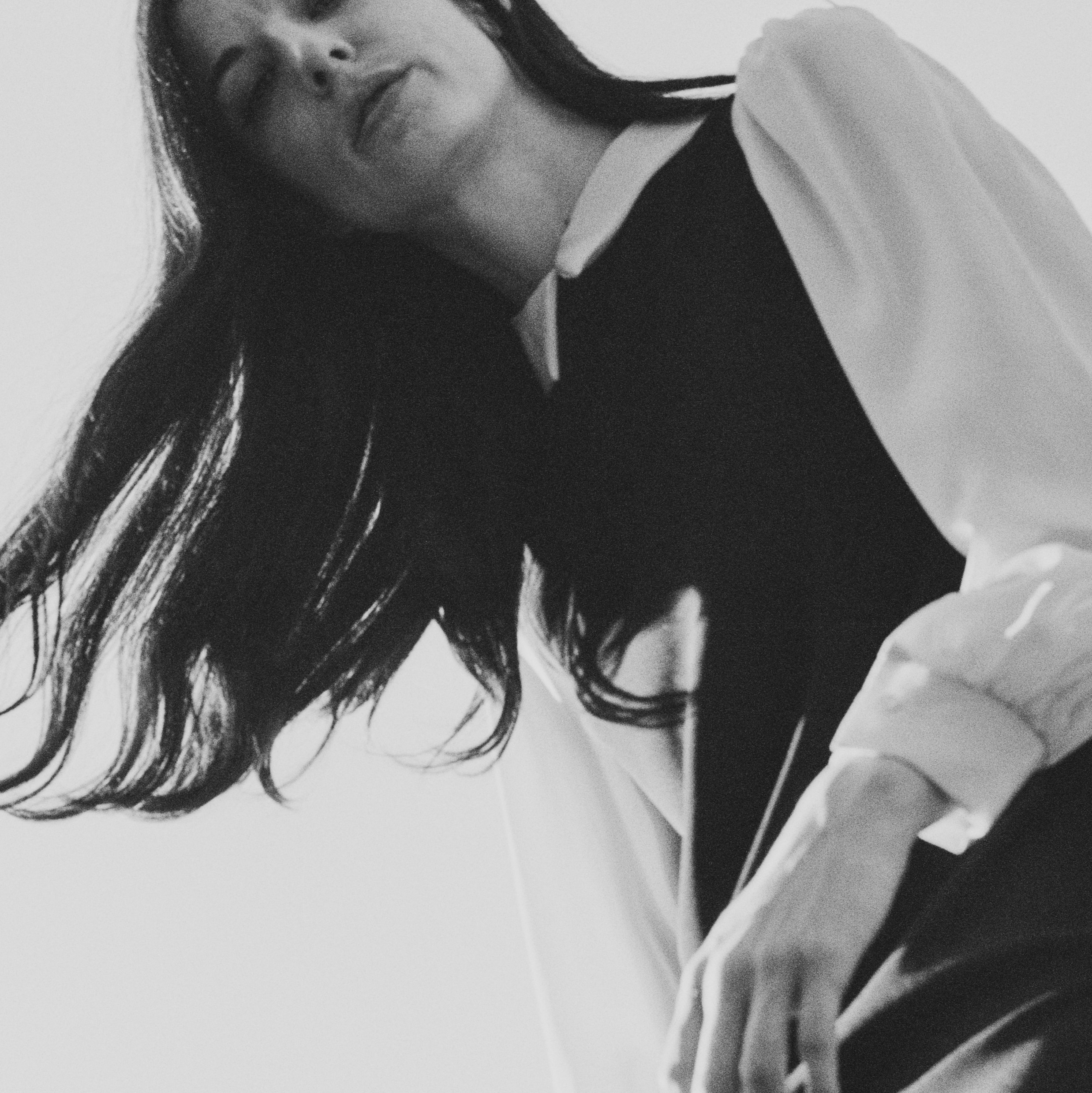
Photo Credit Daniel Shea
In 2017, before my book came out, I attended an artist residency at a place called MacDowell in New Hampshire, and there was a piano in the cabin where I was staying. It was a composer cabin, so even though I went as a writer, I started playing piano again.
I wrote a song for a book trailer that I did, so I wrote a theme song for Tonight I’m Someone Else, and to me, that seemed almost funny, because who writes a theme song for their book? But I liked the song, so I just recorded it on my phone, and I made a video months later, and I put it out, but it didn’t get much traction or attention, with the exception of a message from Geoff Rickly of Thursday, out of all people. We had a few mutual friends, and I was a huge Thursday fan— in high school, I’d seen Thursday play. He was like, “This song is really incredible.” And he wanted to know what my deal was and if I was writing more music. My husband, Mark McCoy, is also a really talented musician, and he has always been really supportive of my music, but I think someone like Geoff coming into my life made me feel like I should take music more seriously. It might sound kind of silly to have needed this other encouragement, but I think I did in a way—I needed someone outside of my life to ask me about it.
Mundane: The concept of “Belong To Nobody”—love as this very ephemeral thing, even a specific love. I wanted to talk about the musician’s desire to make those moments more solid within a song and then sharing them. Does creating art about a specific memory make it more “real” in a sense?
Chelsea: I like the idea of using art as a way to process events or emotions from my life, because first of all, turning them into art is so satisfying, but it’s also really gratifying to release whatever you’ve created. I think of it as letting the song, the essay, the poem, whatever it is, live its own life without me. I’ve made this joke about my essays before—once they’re “released,” saying, like, Now they’re your problem. Because it’s certainly not that I’ve fixed all the problems in my life, but I’ve written about them in such a way that they’ve transformed into something else, and I now can hand them off to someone else, like a baton.

